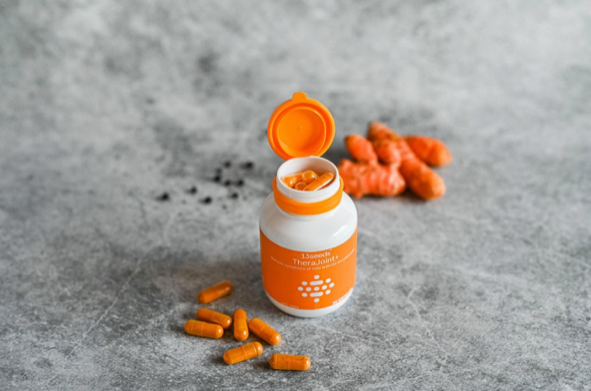Written by Benjamin Semmens, Registered Nutritionist (BHSc)
Congratulations! You’ve taken a huge step towards improving your health and fighting inflammation by purchasing TheraJoint+. At 13 Seeds, we want to make sure you're set up for success, and even with one of the most powerful health supplements in the world, your body will still need some extra help from you in the form of a healthy (and anti-inflammatory) diet and lifestyle.
Read on to learn more about the hidden inflammatory culprits to stay clear from.
-
Added sugars
When we think of sugar, we often think of table sugar, but it is actually found in many common foods and drinks that we consume, even fruit. There are two common types of sugars found in our diet: fructose and glucose. The difference between the sugar found in fruit and the sugar found in soda is the nutrient profile. Fruit contains large amounts of fructose, however, it also contains large amounts of fibre that offset these effects by having an anti-inflammatory effect on the body. The problem with the sugar added to commercially prepared foods is that it increases inflammation which can lead to symptoms of pain and other diseases including obesity, diabetes, and cancer. If you have a sweet tooth, no need to panic. Instead of consuming soda and sugary snacks, opt for healthier alternatives such as berries, bananas, and mangos to get your fix.

-
Artificial trans fats
Not all dietary fats are created equally. Some are incredibly inflammatory with artificial trans fats being one of the worse types of fat consumed in the diet. Trans fats naturally occur in dairy and meat, the difference is that trans fats found in processed foods are artificial that have shown to cause inflammation and increase the risk of disease. Many margarines also contain trans fats, despite being marketed as a “health food” for years. Other foods you want to avoid that are high in artificial trans fats include fast food (e.g. deep fried foods) and processed foods (e.g commercially prepared baked goods). The easiest way to avoid inflammatory trans fats is to limit your intake of take away and processed foods and eat whole foods that are unprocessed.
-
Vegetable oil
Omega-3 and omega-6 fatty acids are essential fatty acids involved in inflammatory processes in the body that are needed in the diet as our body cannot make them. Omega-3 fatty acids have anti-inflammatory effects, while omega-6 fatty acids have inflammatory effects. We need both in the diet with the ideal ratio of omega-3:omega-6 being 1:3, however, the current western diet is estimated to contain roughly 25:1. Vegetable oils, such as safflower oil, sunflower oil, soybean oil, vegetable oil and canola oil, are major sources of omega-6 fatty acids, and while we need them to some extent, overconsumption can be unhealthy. It’s recommended to limit your intake of vegetable oils and increase your intake of healthy oils high in omega-3 such as hemp seed oil, avocado oil and olive oil to reduce inflammation.

-
Alcohol
People who suffer from symptoms of inflammation don’t often realize how inflammatory alcohol is on the body. Excessive alcohol consumption has shown to increase inflammatory markers in the body and with the more alcohol consumed, the higher the inflammation. Another issue with alcohol is that it can contribute to intestinal permeability, aka “leaky gut.” This can lead to toxins moving out of the gut and into the bloodstream causing inflammation in all areas of the body. Avoid alcohol when possible and if you’re going to drink aim for no more than 1-2 standard drinks.
-
Poor Sleep
Sleep has an essential role in supporting your immune system and getting enough sleep can help balance your immune defences. Research has shown that lack of rest can result in increased inflammation and with your defences down, it’s much easier to fall sick.You could be doing all the right things, but if you’re not getting your recommended 7-9 hours a night, all your hard work fighting inflammation may not be working as well as it should.
If you have any questions or need some extra support with your health, feel free to email our head nutritionist Ben at ben@13seeds.com.au and subscribe to our blog for more updates.
Disclaimer:
This article does not constitute medical advice and does not take into consideration your personal circumstances. Please see your medical professional before implementing the above







